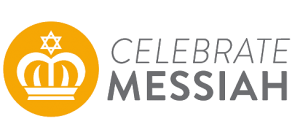Christmas Lights and the Lights of Hanukkah
During the Feast of Dedication, or Hanukkah as it is commonly known, Jewish people around the world celebrate God’s provision and protection. Hanukkah is celebrated beginning on the 25th day of the Hebrew month of Kislev, which usually falls in December. During the eight days of Hanukkah everybody (including children) takes turns lighting the special Hanukkah menorah and they reflect on God’s faithful loving-kindness.
The Hanukkah menorah is a nine-branched candelabra, called a hanukkiah. The middle candle is always there, but as the nights go on, additional candles are added from right to left when facing the candelabra.The candles are lit with the middle candle—known by its special designation as the “servant” candle, from left to right (lighting the newest candle first). Redemption and sacrifice are two key concepts of Hanukkah because the Maccabean victory (which was a victory for all Jews as it gave them independence for the first time in 500 years), came at a great cost.
The famous Jewish traditional story of the miracle of the oil is known by many. After the great victory over the Greek army, the Maccabees only had enough purified olive oil to fuel the eternal light in the Temple, as they were rededicating the Temple, for one day, but the oil lasted for eight days. However, the true miracle is God’s faithfulness to His promises to the Jewish people because they were chosen for a great purpose that was yet to be fulfilled: to bring into this world the Messiah called Jesus of Nazareth, who is the revelation of God (Col. 1:15ff; Heb. 1:1-5) and the Savior of the whole world.
Hanukkah is mentioned in the New Testament in John 10:22, where Jesus is found to be walking in the Temple area on what is called “the Feast of Dedication.” At this time he proclaimed that he is the light of the world (Jn. 8:12). During Second Temple Judaism there was a lamp-lighting ceremony in courtyards in the city–a time of celebration and joy as people remembered God’s deliverance and provision. It was during this time that the Messiah proclaimed that He was the Light of the World.
The prophet Isaiah, who predicted the coming of the Messiah, also spoke of light in regard to the messianic redemption of Israel. In chapter 9 he writes “The people who walk in darkness will see a great light; those who live in a dark land, the light will shine on them …” In the same chapter he foretells of a child being born who leads men out of darkness and into the light of God. He iscalled Wonderful Counselor, Mighty God, Eternal Father, Prince of Peace.
Jesus the Messiah is “a light for revelation to the Gentiles, and the glory of your people Israel” (Lk. 2:32) and is the radiance of the glory of God (Heb. 1:3). As believers in Messiah, Hanukkah reminds us that Jesus, the Light of the World, walked and taught in the Temple, preaching salvation and spiritual freedom. Celebrating Hanukkah as believers thus adds a special dimension to the holiday. Retelling the Hanukkah story, singing the traditional songs and playing games creates warm memories as we remember the Light of the World, the Giver of salvation and the One who protects and provides for our families. In the words of Alfred Edersheim, a famous Jewish Christian scholar from the 19th century, “But to us all, whatever our special views or conclusions may be, Christ is the true Temple, and His Incarnation the real Dedication of the Temple. God grant that from our homes the true Light of Christ, ‘a light to lighten the Gentiles,’ may shine forth into the wintry darkness of the heathen world, and also ‘so shine before men, that they may see our good works, and glorify our Father which is in heaven.’”1
1. Alfred Edersheim, The Leisure Hour, London, England, No. 1147, December 20, 1873, pp. 810-812


